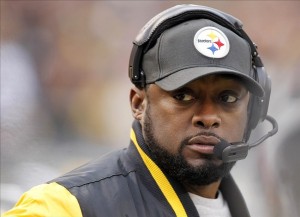The Leader as a Coach
 Much like a football team that is playing in the Super Bowl, having a game plan and the desire to win is important. Unfortunately, my Steelers will not have a chance to repeat this year. However, winning depends on execution. One of your primary roles as a leader is that of a coach. Coaches reinforce the results they believe people are capable of achieving.
Much like a football team that is playing in the Super Bowl, having a game plan and the desire to win is important. Unfortunately, my Steelers will not have a chance to repeat this year. However, winning depends on execution. One of your primary roles as a leader is that of a coach. Coaches reinforce the results they believe people are capable of achieving.
One way to develop a winning team is to surround yourself with extraordinary people. Another is to surround yourself with ordinary people who through your leadership and coaching achieve extraordinary results. As Sam Walton once said “ … there’s absolutely no limit to what plain, ordinary working people can do if they’re given the opportunity and the encouragement and the incentive to be their best.” As a coach, your role is helping people develop winning attitudes and improve their skills. A coach helps people see beyond the problems, the limitations, and the “known” to focus on solutions and opportunities which are sometimes found by venturing into the “unknown.” If you are to create a winning team, you must be good at coaching. You must be able to inspire extraordinary performance from ordinary people. Coaching is seeing new possibilities and providing the support and guidance to help people and organizations to achieve new heights.
Coaching, though highly individual, has three basic functions. The first function of a coach is getting to know every person as an individual. If you are to coach them to higher levels of performance, you need to know what their skills are, what their level of knowledge is, what their goals are, and what you can do to help them reach their goals.
The second function of a coach is developing people and challenging them towards higher levels of achievement. Create a detailed development plan for and with each individual with whom you are directly working. Set goals, both short and long-term. Develop action steps and target dates along the way. Focus on those critical few action steps that are essential for personal and organizational goal achievement.
The third function of a coach is creating an environment for motivation. A motivating environment helps people become excited about setting and reaching goals. Figure out what inspires people and use this knowledge to create an atmosphere that stimulates high levels of productivity and effective decision making. Get to know what issues are important to each individual, Encourage people to talk openly and discuss problems as well as opportunities. Challenge them to go beyond their comfort zone. Help them to have the confidence to stretch themselves.
Your goal as a coach is to make the most of your most valuable resource, your people, and to maximize the skills, abilities, and knowledge of each person in the organization. Inspiring people to higher levels of performance has a lot to do with spirit, creating excitement, commitment, and desire. It is coaching ordinary men and woman to extraordinary achievements.
Tammy A.S. Kohl is President of Resource Associates Corporation. For over 30 years, RAC has specialized in business and management consulting, strategic planning, leadership development, executive coaching, and youth leadership. For more information visit www.resourceassociatescorp.com or contact RAC directly at 800.799.6227.
